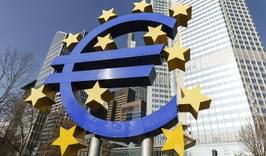Macro
BRIC And Mortar: Recent Challenges Aside, Opportunities Abound
Emerging Markets (EM) equities continue to be an exciting area of opportunity in 2016, even though performance overall has been challenging over the past 5 years. The long-term case for EM equities, which is broadly similar to that of EM debt, remains intact and, if anything, is now stronger given the relatively attractive valuations seen in EM equity markets.
5 Jul 2016
Brazil: Caution Over The Signs
The confidence indexes of executives in various economic sectors as well as of consumers have stopped sinking and started to show signs of recovery. Since these indexes are leading indicators of the future behavior of the economy (reversals in the pattern of confidence indexes precedes reversals of the activity indicators), there are reasons for a feeling of relief. But a certain dose of caution…
4 Jul 2016
In The Know: A View From The MENA Fixed Income Markets
Anita Yadav is Head of Fixed Income Research at Emirates NBD. She has over 14 years of experience in fixed income research and sales, spread across Australia, India, Asia and Middle East. In her current role, she focusses on global fixed income markets with a particular emphasis on the GCC region, covering conventional bonds as well as sukuk products.
1 Jul 2016
Emerging Europe emerges from Brexit’s wake
Although Emerging Europe was undoubtedly the most significantly affected region after the Brexit vote result sent out shockwaves globally, the region’s bond and currency markets recovered quickly.
29 Jun 2016
LatAm high-yield burdened by upcoming maturities
Latin American high yield corporates from a number of sectors and countries face a high volume of maturing debt over the next two years. Brazilian entities are likely to suffer worse than others due to the economic climate in the country.
29 Jun 2016
Middle East credit sturdy in Brexit’s wake
The GCC has managed to escape the fallout from Brexit, compared to other emerging markets. Steady oil prices and high levels of demand for the region’s debt means its fixed income assets have remained resilient.
27 Jun 2016
Brexit: Time To Be Rational Not Sentimental
With markets increasingly pricing Remain in the days prior to the referendum, global equities are down sharply, matching or in some cases exceeding the dark days of 2008. Sterling is at the centre of the storm, with a nearly 10% hit against the US dollar since Thursday’s close. Not surprisingly, traditional safe havens such as government bonds in advanced economies, the Japanese yen and gold are…
24 Jun 2016
Brexit rocks the EM boat
Brexit has sent shock waves across international markets. Although emerging markets across the globe and investor sentiment are suffering in the wake of the vote, some economies coping better than others, and overall the implications of the UK’s vote to leave could soon subside. However, future referendums across other EU member states could have serious implications for Eastern European EMs in…
24 Jun 2016
Underperformance on the rise in China
The rising number of non-performing loans (NPLs) across the Chinese banking sector is linked to the worsening performance of entities, state-owned or otherwise, within the corporate sector. Although China’s four largest lenders have a significant number of NPLs, the government is unlikely to let these entities fail.
23 Jun 2016
Central Banks: How Low Can You Go?
Denmark, Sweden, the Eurozone, Switzerland and Japan. The Central Banks of these countries, listed in chronological order, are the pioneers of negative interest rates. Under conventional monetary policy, banks earn income (interest) from cash reserves parked at the Central Bank. Under negative interest rates, banks are penalized and charged a fee for holding cash.
23 Jun 2016









